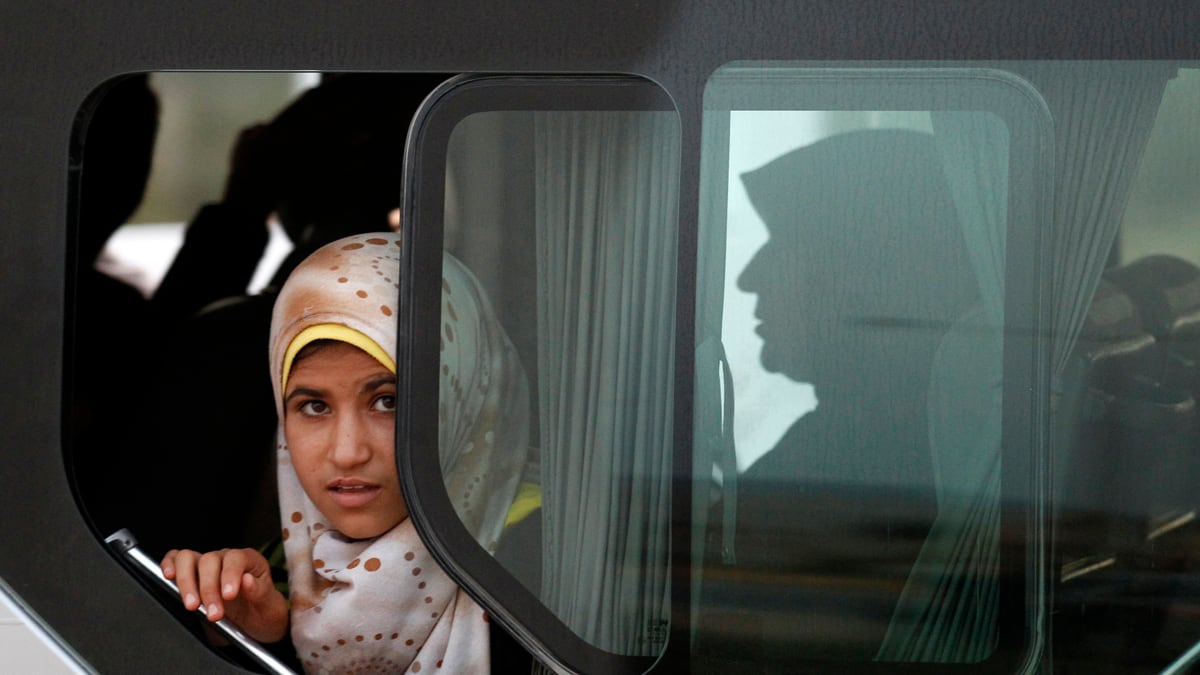From Reyhanli, the Turkish border city where he arrived as a refugee last week, Moustafa, who asked to withhold his family name, has been calling home to Aleppo, Syria, regularly to check on his birds. He keeps 15 canaries in his barbershop in Bistan al-Qaser, a bustling neighborhood filled with tradesmen and small-business owners, and from the start of the surprise rebel push that took hold in Aleppo last month, he could tell the birds were ill at ease. When a regime shell fell in Salaheddine, the poor neighborhood across town that has seen the brunt of the fighting, the canaries screeched and fluttered wildly in their cages. Then the shelling grew more frequent, and it drew into Bistan al-Qaser itself—one shell destroyed a well-known coal shop; another exploded in the local park. Moustafa soon found himself passing the days alone in his shop, the birds screeching nonstop.

With the situation deteriorating rapidly in recent days, he gathered his family and finally fled—but not before giving the keys to his shop to a rebel fighter he knows in town and asking him to keep an eye on the birds. Sitting in a four-room house in Reyhanli last night, where he lives now with three other Syrian families, Moustafa held out hope that the refugee experience would be more like a prolonged trip abroad than a dissolution of his former life. “We’re hoping the situation will be solved soon,” he said. “But we don’t know how long it will take.”
As fighting in Aleppo has intensified, residents have fled the city en masse. But many have yet to cross the border into Turkey. Instead, they wait things out in the surrounding area, or elsewhere in Syria, hoping the situation will settle down enough for them to resume their lives. A number of his neighbors had even brought their families to the countryside, Moustafa said, then returned to Aleppo to hold down the fort.
Some 2,000 Syrians have crossed into Turkey over the last four days, many from Aleppo, according to Suphi Atan, a spokesman for Turkey’s foreign ministry. But the new numbers still pale in comparison to what could be in store if more people decide the situation in Aleppo has reached a breaking point and accept a fate as refugees. “We hear that around 150,000 people are fleeing Aleppo, but they haven’t come to Turkey yet, at least for now,” Atan says. “They are still waiting.”
Camps run by the Turkish government now host around 46,000 refugees. There are eight camps in operation, with another five on the way, including one that opened in Orfa today. Reyhanli, a popular border crossing from Aleppo, serves as a transit point—at the main reception center yesterday, kids played basketball as their families waited beneath an overhang to be rerouted to permanent camps elsewhere along the border.
But the official number in the camps, according to one person familiar with the refugee situation in Turkey, could be less than half of the total number now residing there, as Syrians like Moustafa pile into houses and apartments together with family and friends in an attempt to maintain some semblance of a normal life. And the majority of the people displaced by the conflict remain inside Syria, says Carol Batchelor, the head of the Turkey office for the refugee commission at the United Nations.
The on-again, off-again nature of the grinding conflict, Batchelor says, has led many who have fled the fighting to take a wait-and-see approach. Even many who have come to Turkey, she notes, often return to Syria if the fighting at home eases up. “I think people are looking to see how the situation will unfold,” she says.
This may be especially true for Aleppo, Syria’s largest city and commercial center, which had gone about business as usual for much of the 17-month-old revolt against the country’s president, Bashar al-Assad. The sudden outbreak in fighting was unexpected for the Assad regime, and for many residents too. The Syrian military’s response—bombarding the city with heavy artillery, and even warplanes—has been equally hard for some people to grasp. “It’s the economic capital of Syria. We didn’t expect it to be like this at all. We expected to be threatened by thugs and bullied with arrests. But the situation has gone mad,” Moustafa says.
“Just imagine that you were at home in New York and Obama started shelling you!” adds a relative, also named Moustafa, who owns a copy shop near the University of Aleppo.
Atan, of the Turkish foreign ministry, worries that if the regime prevails in Aleppo, the numbers pouring into Turkey will skyrocket—with Syrian forces possibly moving to clear the surrounding countryside, now largely in the control of rebel fighters, where many people are hiding out. “If Aleppo is won by the regime, there will be a huge influx into Turkey,” he says. “It will directly affect us here.”
For now, though, even those who have fled seem be clinging to the idea that they might be back at any time. Reached by phone last night, the rebel fighter who has been keeping an eye on the birds at the barbershop said a number of Aleppo residents had left him with keys and similar requests, which he said he was happy to oblige. “It’s a human thing,” he said, adding that he’d fed the canaries the day before. “The birds are well.”






